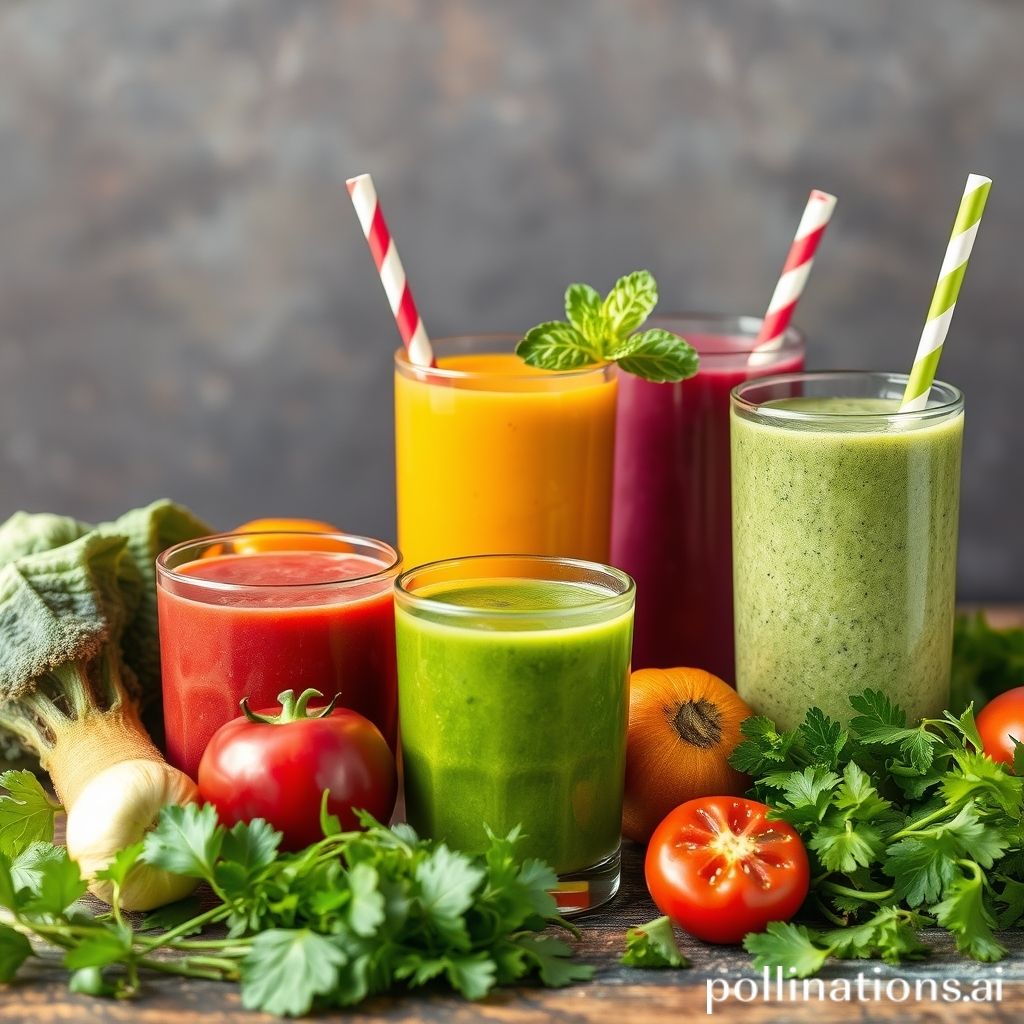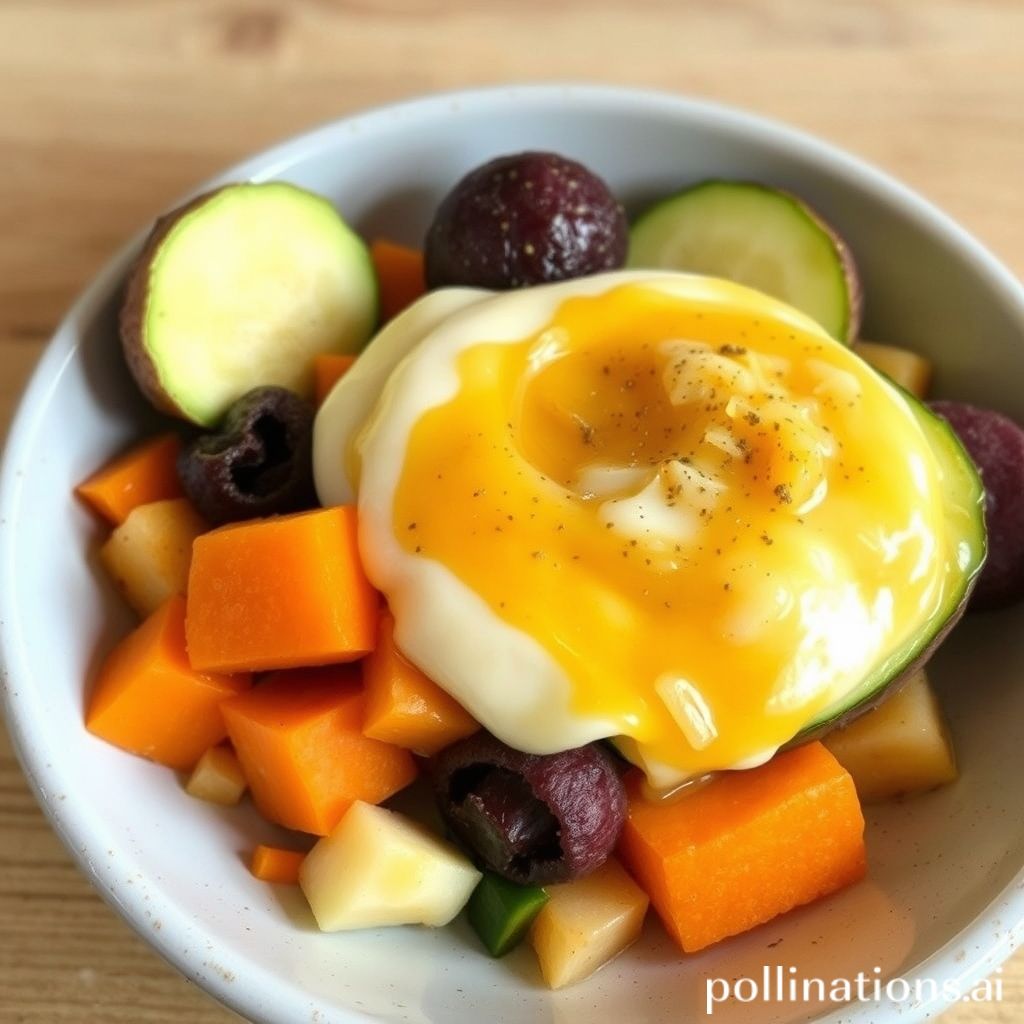Boost Your Smoothies with these Nutrient-packed Vegetables
Smoothies have become a popular choice for breakfast or a quick snack. Nonetheless, there is a growing debate about whether these blended drinks are as beneficial as they seem.
Nutritionist Sarah B. Krieger recently presented her findings, suggesting that blending fruits reduces their fiber content and allows sugar to quickly enter the bloodstream. This sudden surge in sugar levels can lead to blood sugar spikes and increased hunger cravings. As a result, people are now curious about which vegetables are suitable for adding to their smoothies. They are seeking a comprehensive list of vegetables that can be blended together to create a nutritious and satisfying beverage.

Table of Contents
Leafy Greens: Powerhouses of Nutrition
1. Spinach
Spinach is a nutrient-dense leafy green that is commonly used in smoothies. It is packed with vitamins A, C, and K, as well as folate, iron, and calcium. Adding spinach to your smoothies can boost their nutritional value and provide beneficial antioxidants.
2. Kale
Kale is another leafy green that is full of essential nutrients. It is a great source of vitamins A, C, and K, as well as fiber and antioxidants. Incorporating kale into your smoothies can help support immune function and promote overall health.
3. Swiss Chard
Swiss chard is a colorful and nutritious leafy green that can add vibrancy to your smoothies. It contains vitamins A, C, and K, as well as magnesium and potassium. Including Swiss chard in your smoothie recipes can contribute to a well-rounded and nourishing beverage.
4. Romaine Lettuce
Romaine lettuce is a hydrating leafy green that is often overlooked in smoothie recipes. It provides vitamins A, C, and K, as well as folate and fiber. Adding romaine lettuce to your smoothies can provide a refreshing and nutritious element.
5. Collard Greens
Collard greens are a type of cruciferous vegetable that offer numerous health benefits. They are rich in vitamins A, C, and K, as well as calcium and fiber. Blending collard greens into your smoothies can contribute to a well-balanced and nutrient-packed beverage.
Including a variety of leafy greens in your smoothies is an excellent way to enhance their nutritional content. These greens not only provide vitamins and minerals but also offer antioxidants that can help protect against oxidative stress and inflammation. Experiment with different combinations of leafy greens to find the flavors and textures that appeal to you. Remember to regularly rotate your greens to ensure a diverse nutrient profile. By fusing these leafy greens into your smoothies, you can enjoy a delicious and healthful beverage that supports your overall well-being.
Expert Tips: Boost your smoothies with leafy greens for a nutrient-packed and delicious beverage. Rotate greens for a diverse nutrient profile.Cruciferous Vegetables: Boosting Your Smoothies’ Nutrition
Incorporating vegetables into your smoothies is an excellent way to enhance their nutritional value. Among the many options available, cruciferous vegetables stand out for their health benefits and unique flavor profile. Here are some cruciferous vegetables you can blend into your smoothies:
1. Broccoli
Broccoli is packed with nutrients and known for its cancer-fighting properties. It’s rich in vitamins A, C, and K, as well as fiber and antioxidants. Adding broccoli to your smoothies can support your immune system and overall well-being.
2. Cauliflower
Cauliflower is a versatile vegetable that blends well in smoothies. It’s high in vitamins C and K, folate, and fiber. Incorporating cauliflower into your smoothies can give them a creamy texture and increase their nutritional content.
3. Cabbage
Cabbage is a low-calorie vegetable that’s rich in vitamins C and K. It also contains compounds that promote digestive health. Including cabbage in your smoothies can add a refreshing crunch and contribute to a balanced diet.
4. Brussels Sprouts
Although Brussels sprouts may not be everyone’s favorite, they offer numerous nutritional benefits. They’re an excellent source of vitamin K, folate, and fiber. Blending Brussels sprouts into your smoothies can add an earthy flavor and enhance the nutrients in your beverage.
| Vegetable | Nutritional Benefits |
|---|---|
| Broccoli | Rich in vitamins A, C, and K, fiber, and antioxidants |
| Cauliflower | High in vitamins C and K, folate, and fiber |
| Cabbage | Low in calories, rich in vitamins C and K, and supports digestive health |
| Brussels Sprouts | Great source of vitamin K, folate, and fiber |
Root Vegetables: Adding Natural Sweetness and Creaminess
1. Carrots
Carrots are not only vibrant in color but also naturally sweet, making them an excellent addition to smoothies. They are rich in beta-carotene, which the body converts into vitamin A, promoting healthy eyesight and skin. Carrots are also a good source of fiber and antioxidants, which can boost the immune system.
2. Beets
Beets, with their deep red color, can add both beauty and flavor to your smoothies. They have a natural sweetness with a slightly earthy taste. Packed with essential nutrients like folate, manganese, and potassium, beets also offer detoxifying properties and support liver health.
3. Sweet Potatoes
Sweet potatoes are not just delicious but also nutritious when added to smoothies. They contribute a creamy texture and a subtle sweetness. High in fiber, vitamin A, and vitamin C, sweet potatoes also contain antioxidants that help reduce inflammation in the body.

Cucumber: A Refreshing and Hydrating Addition
1. Cucumber Benefits
Cucumbers are not only a refreshing vegetable but also a great addition to your smoothies. Here are some benefits of incorporating cucumbers into your smoothie recipes:
- Hydration: Cucumbers are about 95% water, making them excellent for adding hydration to your smoothies.
- Rich in Nutrients: Cucumbers are low in calories but high in essential nutrients like vitamin K, vitamin C, potassium, and magnesium.
- Antioxidant Power: Cucumbers contain antioxidants that help protect your body against free radicals and reduce inflammation.
- Good for Digestion: The high water content and fiber in cucumbers can promote healthy digestion and prevent constipation.
2. Cucumber Smoothie Recipes
Ready to incorporate cucumbers into your smoothies? Try these delicious and nutritious cucumber smoothie recipes:
| Recipe | Ingredients | Instructions |
|---|---|---|
| Refreshing Green Smoothie |
|
|
| Cucumber-Berry Bliss |
|
|
These cucumber smoothie recipes are not only delicious but also packed with nutrients. Experiment with different combinations to find your favorite cucumber smoothie blend!
Zucchini: Adding Extra Nutrients
1. Benefits of Zucchini
Zucchini, also known as courgette, is a versatile vegetable that can be a valuable addition to your smoothies. It is packed with essential nutrients that offer numerous benefits for your overall health and well-being. Zucchini is rich in vitamins A, C, and K, which support a healthy immune system, promote collagen production, and aid in blood clotting. It is also a good source of potassium, important for maintaining proper heart function and regulating blood pressure.
Furthermore, zucchini is low in calories and high in dietary fiber, making it an excellent choice for weight management and digestive health. The fiber content in zucchini helps promote regular bowel movements and keeps you feeling fuller for longer, reducing the risk of overeating. Additionally, zucchini contains antioxidants that contribute to skin health and may help protect against certain chronic diseases.
2. Zucchini Smoothie Recipes
Adding zucchini to your smoothies not only enhances their nutritional value but also provides a creamy texture and subtle flavor. Here are two delicious zucchini smoothie recipes to try:
| Zucchini-Berry Blast | Green Zucchini Delight |
|---|---|
| – 1 cup chopped zucchini | – 1 cup chopped zucchini |
| – 1 cup mixed berries | – 1 cup spinach |
| – 1 banana | – 1 banana |
| – 1 cup almond milk | – 1 cup coconut water |
| – 1 tablespoon honey | – 1 tablespoon chia seeds |
Blend all the ingredients together until smooth and enjoy a refreshing and nourishing zucchini smoothie.
Conclusion
Vegetable smoothies offer a versatile and nutritious way to boost your health. By blending vegetables into your smoothies, you can enjoy a wide range of vitamins, minerals, and antioxidants in a convenient and delicious form.
From leafy greens like spinach and kale to nutrient-rich options like carrots and cucumbers, the options are endless. Incorporating vegetable smoothies into your diet can support your overall well-being, promote digestion, and provide a natural energy boost. So, go ahead and experiment with different vegetable combinations to create your perfect, nutrient-packed smoothie and enjoy the benefits it brings to your health.
FAQ: Answering Common Questions about Vegetable Smoothies
FAQ 1: Can I use frozen vegetables in my smoothies?
Yes, you can use frozen vegetables in your smoothies. Frozen vegetables are a convenient option as they are already chopped and ready to use. They also help to make your smoothie cold and refreshing.
FAQ 2: How much vegetables should I add to my smoothie?
The amount of vegetables you should add to your smoothie depends on personal preference and taste. As a general guideline, starting with one or two cups of vegetables is a good starting point. You can adjust the quantity based on your desired taste and the consistency you prefer.
FAQ 3: Can I mix different vegetables together in a smoothie?
Absolutely! Mixing different vegetables together in a smoothie is a great way to enhance the flavor and nutritional value. You can experiment with combinations like spinach and kale, or carrots and beets, to create a unique and tasty smoothie.
FAQ 4: Do I need to peel vegetables before adding them to my smoothie?
In most cases, it is not necessary to peel the vegetables before adding them to your smoothie. That being said, some vegetables, like carrots or cucumbers, may have a tough outer skin that you may want to remove for a smoother texture.
FAQ 5: Can I use canned vegetables in my smoothies?
At the same time fresh or frozen vegetables are generally preferred, you can use canned vegetables in your smoothies as well. That being said, it is important to choose canned vegetables that are low in sodium and don’t contain any added sugars or preservatives. Rinse the canned vegetables before using them to remove excess salt or any other unwanted flavors.
Read Similar Post:
1. Boost Your Smoothies with Nutritious Broccoli: Health Benefits and Tasty Recipes
2. Relieve Upset Stomach Symptoms with a Soothing Smoothie

